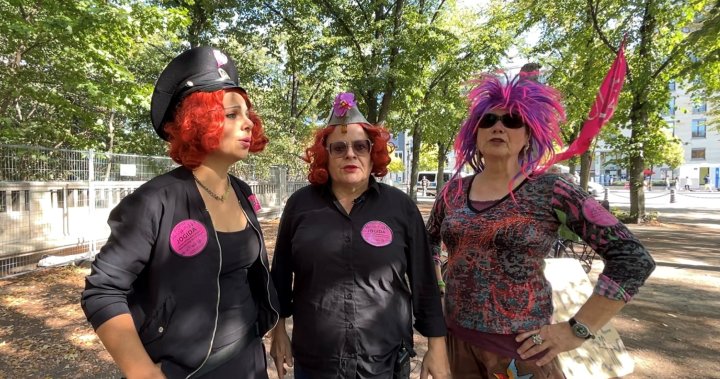In Berlin’s Tiergarten park, Elena Guzman and Gaia Schulze yodel as part of the Jogida collective in a counter-protest to an anti-abortion march. They slip in untraditional lyrics criticizing the right-wing AfD party. The duo, also known as “Esels Alptraum,” uses yodeling as a form of resistance against fascism. Schulze, a 65-year-old, expresses fear about the rise of right-wing parties and the potential loss of the freedoms she has experienced throughout her life.
Yodeling, typically associated with conservative thinking, is being reclaimed by Guzman and Schulze as a form of protest. They aim to challenge conventional perceptions of yodeling and use it as a means to combat fascism. Dr. Sydney Hutchinson, a musicology and media studies research associate, explains how yodeling was used as a tool for propaganda during the Nazi regime, appropriating German folklore. She joins Guzman and Schulze in their efforts to re-signify yodeling and reclaim it from its tainted history.
Doreen Kutzke, a yodel MC and DJ, has been on a mission to bring yodeling to the mainstream by mixing traditional yodeling with techno music. She has performed at various night clubs and unconventional venues around the world, including inside a combat tank and water silo. Kutzke aims to challenge preconceived notions about yodeling and experimental music. She plans to create a yodel board game and continues to use yodeling as a platform to spread her message globally.
The use of yodeling as a form of protest and resistance is not only limited to Berlin but is becoming a growing trend across the German-speaking world. Many individuals are exploring ways to reclaim yodeling and use it as a tool for social and political activism. By subverting traditional perceptions and experimenting with new forms of the genre, yodelers like Guzman, Schulze, Hutchinson, and Kutzke are challenging the status quo and redefining the cultural significance of yodeling.
Through their unconventional approach to yodeling, Guzman and Schulze continue to make a political statement against the rise of right-wing ideologies and the erosion of democratic values. By combining music with activism, they hope to inspire others to join in the fight against fascism and promote a more inclusive, liberal society. Their dedication to using yodeling as a form of resistance demonstrates the power of art and creativity in shaping political discourse and challenging oppressive systems.
As they pack up their gear and move to another location to continue their protest, Guzman and Schulze remain committed to using yodeling as a means of resistance and empowerment. Despite the challenges they face, they are determined to amplify their voices through music and engage in meaningful political activism. The Jogida collective’s unconventional approach to yodeling serves as a powerful reminder of the potential of art to inspire social change and bring visibility to important social issues.













